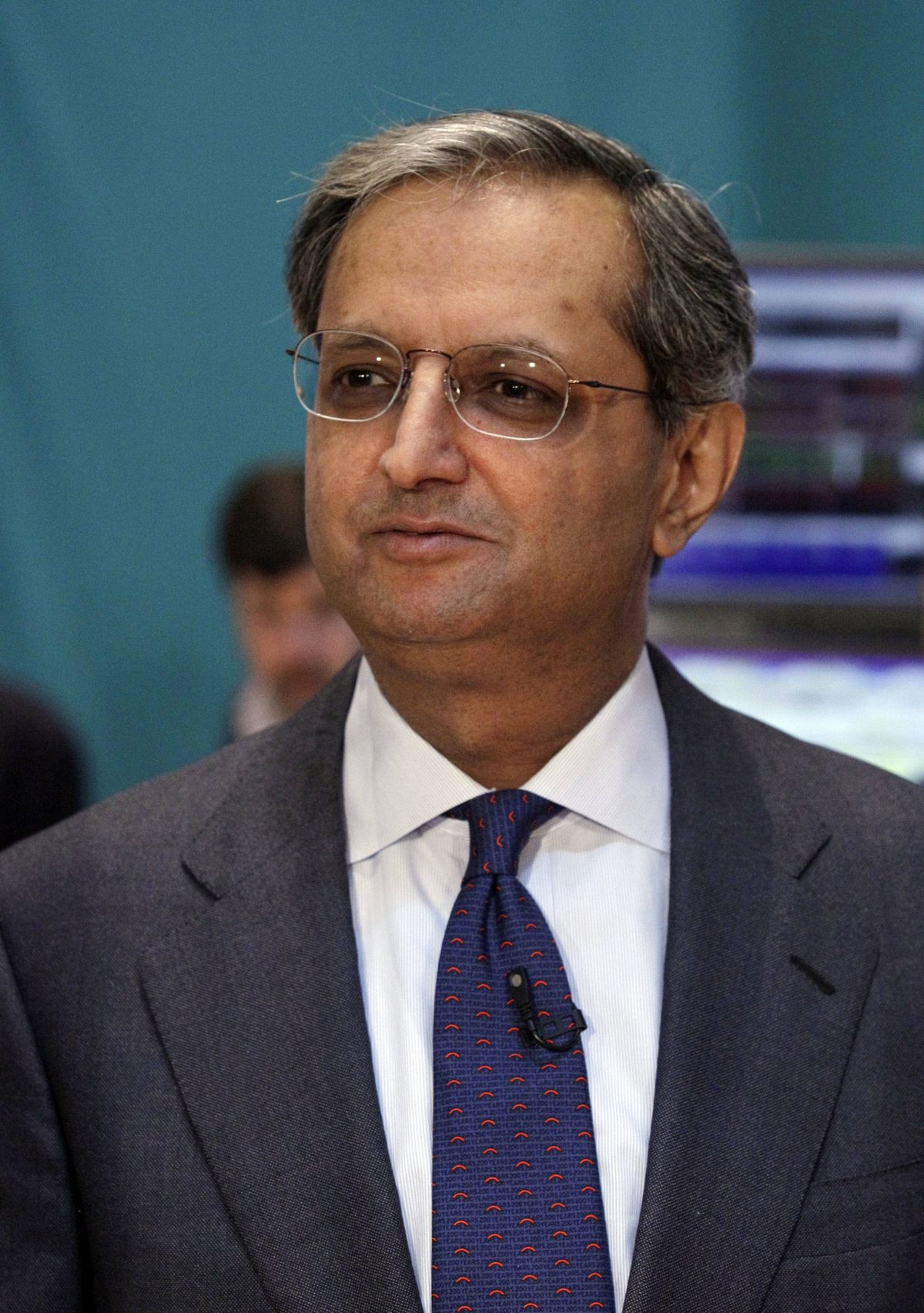Citigroup CEO resigns in abrupt leadership shift
Surprise move comes on heels of strong earnings report released Monday

Vikram Pandit, who steered Citigroup through the 2008 financial crisis and the choppy years that followed, abruptly left the bank on Tuesday, stepping down as CEO and as a director.
The move shocked Wall Street, and Citigroup offered no explanation. There had been no hint of the departure Monday, when the bank discussed its strong third-quarter earnings in lengthy calls with financial analysts and reporters.
A second top executive resigned as part of the shake-up: President and Chief Operating Officer John Havens, who was also CEO of Citi’s Institutional Client Group, which serves global companies, banks and governments.
Pandit was replaced immediately by Michael Corbat, 52, who had been CEO of its Europe, Middle East and Africa division. Corbat joined the bank in 1983, just after graduating from Harvard.
The Wall Street Journal reported that the departures followed a clash between Pandit and the company’s board over strategy and business performance, including at the group run by Havens.
In a conference call late Tuesday with analysts and reporters, Corbat and Citigroup chairman Michael O’Neill remained vague about the sudden change.
“What happened is that Vikram submitted his resignation and we accepted it,” O’Neill said more than once. Corbat said the changes do not reflect any desire to change Citigroup’s strategic direction.
Analysts suspected there was more to the story. Pandit’s departure from the board is a clear indication that “this was a complete and unexpected break” between Pandit, 55, and Citi directors, said Chris Whalen, a bank analyst and senior managing director of Tangent Capital Partners in New York.
“This shows how dysfunctional this organization is, to have this event unfold this way,” Whalen said. “They should have told us yesterday, unless they didn’t know.”
If Pandit’s disagreements with the board were recent, his trouble with shareholders had been brewing far longer. They rejected his 2011 pay package in a nonbinding vote this spring.
Since joining the bank in December 2007, Pandit has made at least $56.4 million, according to data compiled for the Associated Press by Equilar, an executive pay research firm.
That includes salary, bonuses, benefits and perks and stock awards. Pandit also made about $165 million from a buyout of his ownership stake in Old Lane Partners, a hedge fund he founded that was acquired by Citi.
The day Pandit was named CEO, Citi’s stock closed at $332.30, after adjusting for a reverse stock split last year that reduced the number of shares in circulation. It closed Tuesday at $37.25, up 59 cents for the day.
Citi’s stock has mainly kept up with its peers over the last year, but its longer-term record is dismal. It’s by far the worst-performing major bank stock over the past five years, having lost 91 percent of its value, versus a 6 percent gain for Wells Fargo and a 2 percent gain for JPMorgan Chase.
Today, Citi is the country’s third-largest bank, with $1.9 trillion in assets. It trails only JPMorgan, with $2.3 trillion, and Bank of America, with $2.1 trillion.
Yet the scars of the financial crisis have continued to plague Pandit and the bank he led, and will confront Corbat as he takes over.
Citigroup was the only mega-bank, aside from Bank of America, to receive more than one round of taxpayer bailout money. It received a total of $45 billion from the government.
The government converted $25 billion into an ownership stake in the bank, the last of which the government sold in December 2010. Citigroup repaid the remaining $20 billion in December 2009.
Citi survived those critical months, but its reputation was tattered. In March 2009, as the crisis raged, President Barack Obama ordered the Treasury Department to consider breaking up Citigroup and removing its executives, according to a behind-the-scenes book about the crisis published last year by journalist Ron Suskind.
Treasury Secretary Timothy Geithner ignored Obama’s request, according to Suskind’s account. Geithner and the White House have disputed his version of events.
Pandit had another powerful opponent in Sheila Bair, an influential bank regulator who ran the Federal Deposit Insurance Corp. during the crisis. Bair wanted the government to fire Pandit after the taxpayer bailouts and government guarantees. Geithner disagreed, and Pandit kept his job.
In an interview with CNBC after Pandit’s departure was announced, Bair said Citigroup has lacked “a clear strategic direction and focus” under Pandit, and said shareholders have been unhappy.
She said that the bank would benefit from a CEO like Corbat with commercial banking experience, as opposed to Pandit’s background in investment banking, and that the move would be beneficial for shareholders.